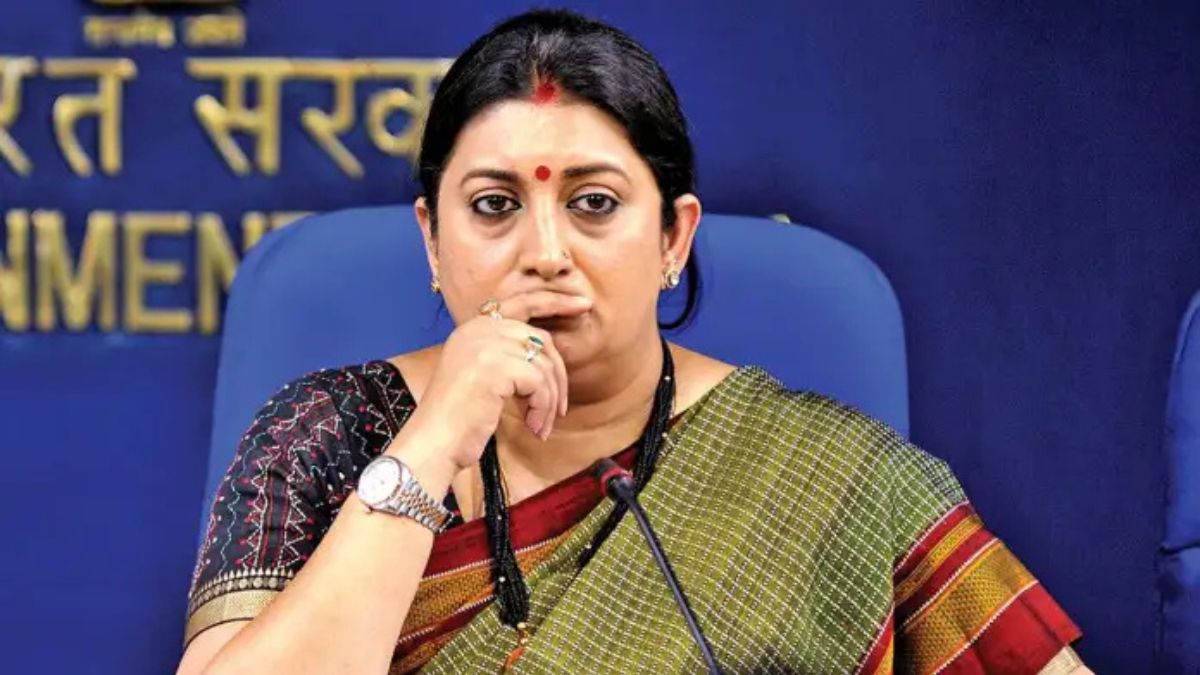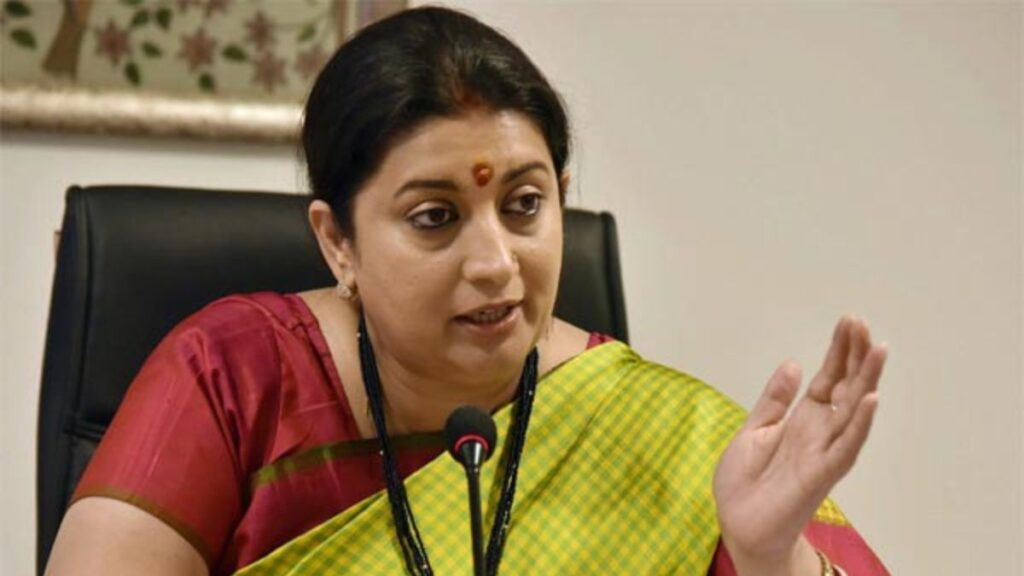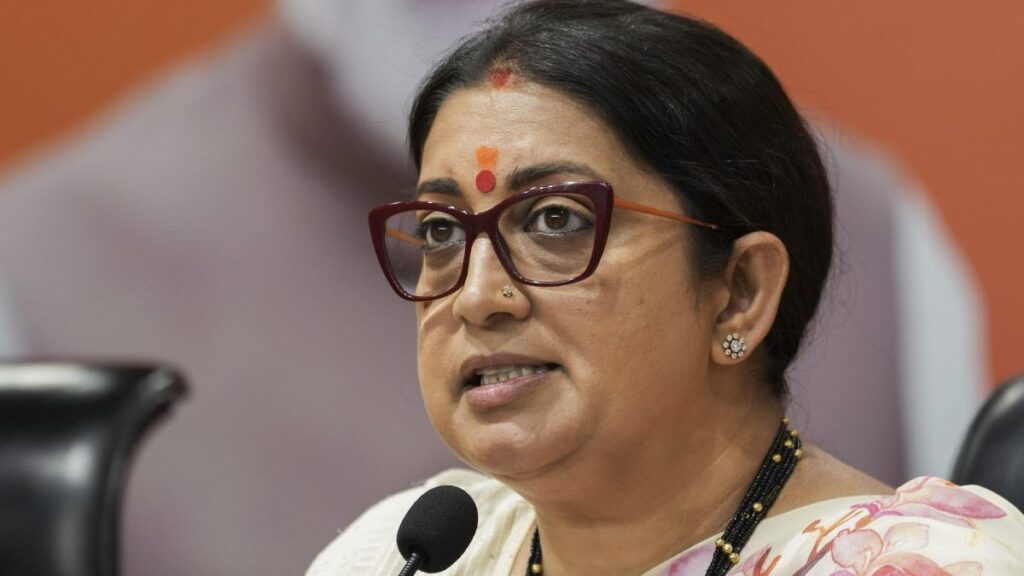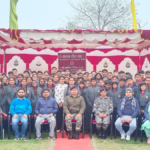
RTI has once again highlighted the growing demand for transparency in India’s public life. The case of Smriti Irani’s CBSE records, which began with a simple RTI application and eventually reached the High Court, has sparked a national debate on the balance between transparency, privacy, and accountability of public figures. This case not only reflects the power of the Right to Information Act in empowering citizens but also sets the stage for critical discussions on how far transparency should extend when it comes to leaders in public service.
The Beginning of the RTI Case

In 2015, an individual named Mohd Naushadudin filed a Right to Information application with the Central Board of Secondary Education (CBSE). At the time, Smriti Irani was serving as the Union Human Resource Development Minister, making her one of the most prominent political figures in the country.
Naushadudin’s RTI request sought access to Irani’s Class 10 and Class 12 admit cards and marksheets. His argument was based on the idea that citizens have the right to verify the educational credentials of elected representatives and public officials.
CBSE’s Response and Rejection

The Public Information Officer (PIO) of the CBSE, however, rejected the RTI application outright. This led Naushadudin to challenge the rejection before the first appellate authority, but his appeal was dismissed again.
The denial raised further curiosity and concerns, leading the applicant to move to the Central Information Commission (CIC) in the form of a second appeal.
CIC’s Landmark Order in 2017
In January 2017, the Central Information Commission issued a significant order in the case. The CIC directed CBSE to:
- Facilitate inspection of relevant records
- Provide certified copies of documents selected by the appellant free of cost
- Withhold only personal details such as addresses or identification numbers present in admit cards or marksheets
This order was widely covered by media outlets, including Bar and Bench, and was seen as a victory for transparency and accountability.
CBSE’s Legal Challenge in the High Court

Despite the CIC’s directive, the matter didn’t end there. The CBSE filed a petition in the High Court challenging the CIC’s order. The education board argued that the release of such documents involved sensitive personal information and raised issues related to privacy.
This legal turn shifted the debate from a simple RTI query into a larger clash between the public’s right to know and an individual’s right to privacy—a debate that continues to shape the RTI ecosystem in India.
Why This Case Matters

The Smriti Irani CBSE records case isn’t just about one politician or one RTI application. It highlights the delicate balance between transparency and privacy, two cornerstones of a healthy democracy.
- For citizens: It reaffirms their right to demand accountability from public representatives.
- For institutions: It raises the need for a clear framework on what constitutes public information versus private details.
- For lawmakers: It underlines the urgent requirement to update RTI practices in the digital era.
Final Thoughts
The High Court petition on Smriti Irani’s CBSE records demonstrates how the RTI Act empowers ordinary citizens to question authority and demand transparency. At the same time, it shows the challenges institutions face when privacy concerns intersect with public accountability.
As the case continues to be remembered, it serves as a powerful reminder of the role of RTI in strengthening democracy. Moving forward, a balanced approach that protects both citizens’ right to know and individual privacy will be crucial.
Note: All information and images used in this content are sourced from Google. They are used here for informational and illustrative purposes only.
Frequently Asked Questions (FAQ) on Delhi HC Order Regarding Smriti Irani’s Academic Records

1. What was the case about Smriti Irani’s academic records?
The case began in 2015 when Mohd Naushadudin filed a Right to Information (RTI) application seeking copies of former Union Minister Smriti Irani’s Class 10 and 12 admit cards and marksheets from the Central Board of Secondary Education (CBSE).
2. What did the Central Information Commission (CIC) order in 2017?
In January 2017, the CIC directed the CBSE to facilitate the inspection of Smriti Irani’s records and provide certified copies, excluding personal details like addresses. The order was seen as a step toward transparency in public life.
3. Why did CBSE challenge the CIC order?
The CBSE argued that disclosing such academic records would compromise privacy. It maintained that the educational qualifications of individuals are personal in nature and not directly linked to discharging public duties.
4. What did the Delhi High Court decide in 2025?
The Delhi High Court set aside the CIC’s 2017 order, ruling that there was no overriding public interest that justified the disclosure of Smriti Irani’s Class 10 and 12 records under the RTI Act.
5. What reasons did the court give for protecting the records?
Justice Sachin Datta noted that:
- Academic details of a public figure do not automatically become public information.
- Disclosure without public interest would amount to intrusion into privacy.
- The Right to Privacy, upheld in the KS Puttaswamy judgment (2017), protects such personal data.
- RTI was meant to ensure government transparency, not to fuel sensationalism.
6. Did the High Court compare this case with any other?
Yes. The court also considered a similar CIC order regarding Prime Minister Narendra Modi’s Bachelor of Arts degree from Delhi University. Like in Irani’s case, the court set aside that order, citing lack of public interest and political motivation behind the RTI application.
7. Does this mean the educational qualifications of ministers can never be disclosed?
Not necessarily. The court clarified that unless a specific qualification is a statutory requirement for holding a public office, academic details remain private. Disclosure can only be mandated if there is a strong, overriding public interest.
8. What is the significance of the KS Puttaswamy judgment in this context?
The KS Puttaswamy vs Union of India (2017) judgment declared the right to privacy as a fundamental right under the Constitution. Justice Datta cited this ruling, emphasizing that personal information such as academic records cannot be disclosed without a compelling reason linked to public duty.
9. How does this ruling affect future RTI applications?
The judgment sets a precedent that prevents misuse of RTI for politically motivated or sensationalist demands. It narrows the scope of RTI applications to focus on government functioning and accountability, rather than personal details unrelated to public responsibilities.
10. What does this case mean for transparency in politics?
While transparency remains crucial, the ruling underlines that privacy and accountability must be balanced. Politicians and public officials cannot be compelled to disclose personal details unless it directly impacts their official duties or eligibility for public office.







Leave a Reply